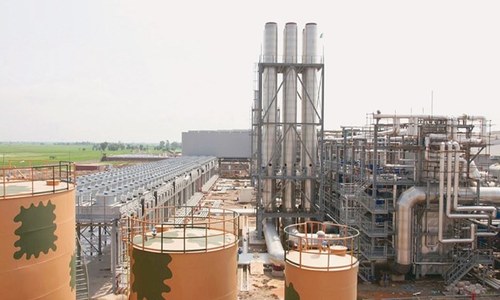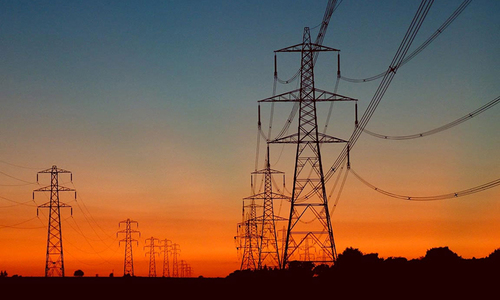ISLAMABAD: Pending conclusion of a National Accountability Bureau (NAB) inquiry, the government has missed the deadline for payment of first instalment of about Rs85 billion to about 19 independent power producers (IPPs) required under an agreement signed on Feb 28.
“Practically this is default on part of the government because it has not paid committed funds in time,” said a representative of an IPP, adding the IPPs set up under 1994 power policy and Hubco contracted before 1994 policy would be entitled to send notices of default to the government on Tuesday.
Under the agreements signed in the last week of February, the government was to clear about Rs85bn to 19 pre-Nepra IPPs set up under 1994 policy and Hubco latest by March 29. The amounts for each IPP were verified and audited and involved no procedural hitch. A Power Division official said these non-payments were already accruing interest and should have been cleared by now.
Inquiry by National Accountability Bureau under way
He said the agreement reached with IPPs was a collective decision of the government involving Cabinet Committee on Energy, Economic Coordination Committee of the Cabinet and the Federal Cabinet, but a political legacy marred the final payments. He agreed that about Rs480bn paid by PML-N government at the outset of its rule to IPPs continued to be criticised by the ruling party and the opposition parties had responded to the latest settlement in the same coin. “Officers cannot be expected to take responsibility for politicised commercial issues,” he added.
As a result, the Power Division was reluctant to release such a sizable amount at its own and sought approval of the ECC for a collective responsibility as the NAB announced to examine the revised agreements and called entire record from the Power Division and its related agencies.
Payment mechanism
The Finance Division, on the other hand, was of the view that it was a routine payment mechanism under which the government has been making payments on regular basis and the reference to NAB inquiries should be avoided in the summary. As a consequence though the ECC did not take a decision and payments remain outstanding.
For the second category of 14 IPPs, it was agreed by the parties that payments would be cleared within 30 days after the ratification of tariffs by the National Electric Power Regulatory Authority (Nepra) on the basis of the government-IPP agreements. Nepra has conducted public hearings on the agreements but has yet to issue its determination. The third category of about five IPPs blamed for getting excess payments by an earlier investigation committee led by former SECP chairman Muhammad Ali has to go through arbitration process. The payments to IPPs of the second and third category amounting to about Rs75bn are thus not payable as yet under the agreement.
A Power Division spokesman said it would be unfair to describe the non-payment by a given date as a government default even though he agreed it was a technical default that was curable. At worst, the IPPs would be free not to give certain tariff discounts but government still had reasonable time to address the issue and best efforts would be made to that end.
The spokesman said clause 5 of the agreements signed by all the IPPs and the government was self explanatory in such situation and provided text of the said clause to the media.
The spokesman said it was premature to portray if the agreements had come to an end and added the government was making all out efforts to ensure transparency in utilization of public funds to avoid any controversy. Therefore, all legal and procedural requirements are being fulfilled for payments and the matter had been taken with all institutions of the government including the ECC.
It said “In the event of any default by the Power Purchaser under this Amendment, the Company shall suspend giving Tariff Discount from the date of default; provided, however, if such default in not cured within a period of seventy (70) Days, the Company shall have the right to terminate this Amendment by seven (7) Days’ Notice, with no rights and obligations of either party arising out of the termination of this Amendment. Termination of this Amendment shall not affect the accrued rights of the Parties”.
This clause also required that Clause-9 of the agreement shall continue in force after termination and shall continue in effect and be binding upon the Parties. Clause-9 said “This Amendment shall be governed by and construed in accordance with the Laws of England. Article XV (Resolution of Disputes) and Article XVII (Miscellaneous Provisions) of the PPA shall apply to this PPA Amendment, mutatis mutandis”.
Published in Dawn, March 30th, 2021*
















































